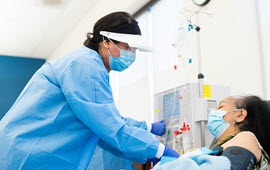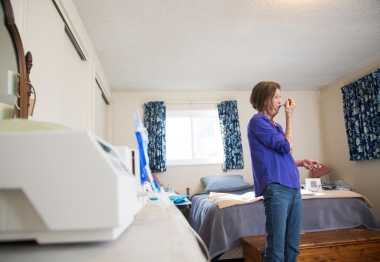
The U.S. population is increasing and people are living longer. At the same time, the number of number of nurses available to care for an aging population is declining. According to the Bureau of Labor Statistics, the U.S. will need an additional 203,700 new registered nurses each year through 2026 to fill newly created positions and to replace retiring nurses.
Nephrology is not immune to this shortage. Approximately 750,000 Americans live with end stage kidney disease (ESKD) and require life-sustaining dialysis care. The number of people needing dialysis is projected to continually increase. Having highly-trained nurses available to care for ESKD patients improves the quality of treatment they’re able to receive.
It’s up to kidney care providers to be innovative in their approach to attracting more nurses to the field and retaining them over time.
Guiding Nephrology Nurses through Specialized Training
The Centers for Medicare and Medicaid Services requires nurses to have at least one year of registered nursing experience before they can staff a dialysis center without another nurse present. After that year of training, nurses are approved to staff these centers independently. Nephrology truly offers a lot of autonomy as well as career mobility.
Kidney care is complex. Strong critical thinking skills are needed to put the pieces together to create treatment plans, safety guidelines and facility quality assessments.
Nurses new to nephrology may desire additional support as they transition from an educational mindset to practice. They will benefit from training with more experienced nurses who provide insight into care delivery.
Research indicates that nurses who are more satisfied in their positions and work collaboratively with other nurses provide better care1. Nephrology nurses work alongside multiple members of the care team. In many respects, nurses are the leaders of the dialysis team and the floor that they’re running. This inter-professional environment brings with it opportunities to cultivate conflict resolution and open communication skills.
A Unique Specialty
Kidney disease patients often transition to different treatment modalities. At a dialysis center, patients receive hemodialysis. They may instead choose home-based care in the form of home hemodialysis or peritoneal dialysis. Other patients may be on the transplant wait list. It’s important for nephrology nurses to be well-rounded in their knowledge. The variety in care delivery also promotes continuing education.
When nurses remain in dialysis for long periods of time, continuity of care improves. Knowledge is power. Kidney care providers can leverage the robust knowledge nephrology nurses have in caring for medically complex, vulnerable patients. Doing so will result in better patient outcomes and a respected, engaged nursing team.
1. The state of the science of nurse work environments in the United States: A systematic review, International Journal of Nursing Sciences, https://www.sciencedirect.com/science/article/pii/S2352013218300309









